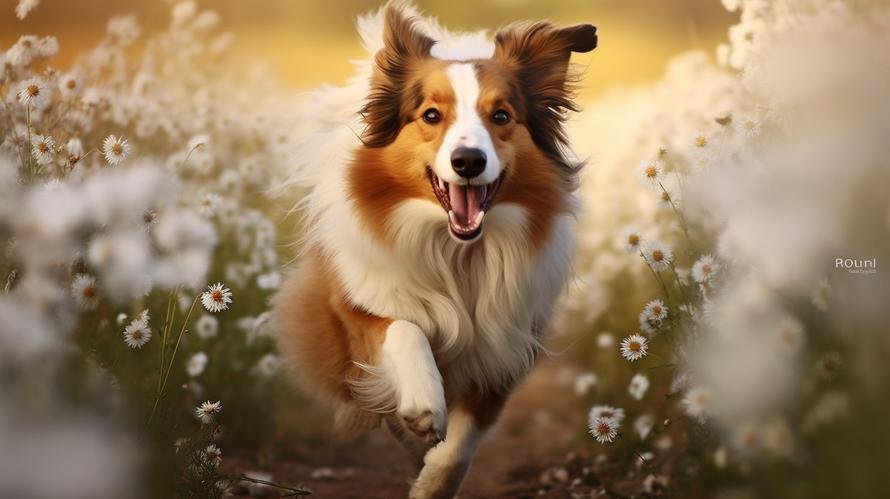If you ask anyone to picture a Collie, their mind will likely race to the famous character of Lassie, a highly intelligent and daring dog that saved the day time and time again. But outside the world of television, you might be surprised to learn, Collies are multi-talented dogs.
Among many talents, Collies are also hailed for their guarding abilities. So, your immediate question now would likely be, “Is a Collie a Guard Dog?” To this, my simple answer would be both a “Yes” and a “No.” Intriguing, isn’t it? Well, read on, and by the end of this article, you’ll understand why.
First, let’s clarify what exactly we mean by a “guard dog.” For some, it simply refers to a dog that will alert their family to strangers or unusual circumstances. Others are seeking a dog that will actively defend property or personal safety. The concept is broad with a spectrum ranging from dogs who bark and retreat, to those who were bred for centuries to defend livestock from predators.
For the alert but non-confrontational end of the spectrum, Collies not only fit the bill but could be considered exemplary. They are acutely tuned to their environments and quickly identify anything unusual. This vigilance makes them excellent alert dogs, hallmarked by their keen sense of hearing and protective instincts.
The Lassie-style heroics you have seen on screen aren’t entirely fiction either. Collies are fiercely devoted to their families and have been known to take initiative and put themselves at risk to safeguard their loved ones. This instinctive, protective behavior does give them potential in dangerous situations, but it’s essential to know that they were not bred to take down intruders or fight off threats as some other guard dogs are known to do.
Getting back to our initial question, the answer is weighed towards the affirmative when we evaluate their primary qualities of alertness, intelligence, and protectiveness. These attributes can be further enhanced through proper training to sharpen their response to potential threats. However, if your expectations are in line with the intimidation and physical prowess displayed by breeds like the Rottweiler or German Shepherd, you might be setting both yourself and your Collie up for disappointment.
Despite Collies excelling in situational intelligence and agility, they are not bred to exhibit aggression, which differentiates them from traditional “guard” dogs. Physically, Collies are lean and agile, but they lack the muscular build and imposing presence that traditional guard dogs possess.
Their psychological makeup is also different. Instead of aggression, Collies respond to threats with heightened alertness and defensive caution. They are thinkers, not fighters. They would rather bark at intruders, warning their family of the danger, than to engage the threat head-on. This ‘defensive caution’ is a term given by experts to describe the breed’s alert demeanor in the face of potential threats.
Now that we understand the underlying reasons that make Collies both fit and unfit as guard dogs, you might be inquisitive. Can training make a Collie a more competent guard dog?
Training indeed plays a significant role in a dog’s ability to guard, but each breed has inherent traits that can make them more or less suited to this role. Collies are quick learners, and they take well to obedience and agility training. They can be trained to respond effectively to specific situations, which might refine their guile and caution to assist them in assessing and reacting to potential threats.
However, it’s important to consider the potential downsides of such training, which can potentially create anxiety and behavioral problems if it leads the dog to perceive ordinary situations as threats. Remember, Collies were bred as herding dogs, they are happiest when they are exercising their intelligence in a positive, constructive manner.
In conclusion, Collies make superb alert dogs, constantly watchful, highly observant, and exceedingly loyal to their loved ones. If you are seeking a dog to detect and inform you of unusual incidents & strangers, but not necessarily confront or attack, a Collie may be just the companion you need. But if you need a muscular, intimidating protector who can physically challenge any potential threat, you might want to look at breeds like the Rottweiler, German Shepherd, or Dogo Argentino instead.
Remember, every dog is unique, and training and environment will significantly impact their behavior. Understanding your needs as well as the inherent traits of the breed you choose is key to making an informed decision for a harmonious and rewarding companionship. So, is a Collie a guard dog? The answer lies in your definitions, expectations, and, ultimately, in the individual bond that you form with your canine companion.



